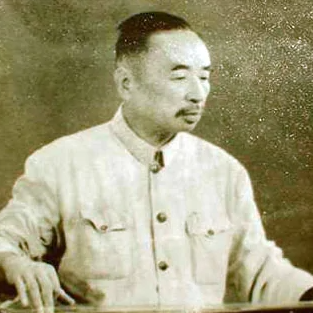Xu Lisun

Xu Lisun (1897-1969), named Zhuo, styled Lisun, and nicknamed Lisun. Jiangsu Nantong people. Guqin master, Zhucheng School Guqin successor, one of the founders of Mei'an Qin Society; one of the representatives of Chongming School Pipa; physician. The main descendants of Xu Lisun Qin Xue are: Liu Jingshao, Zhu Huisen (the former "Minister of Education" of the Taiwan authorities), Wang Yongchang, Wu Zonghan, Chen Xinyuan, Liu Chicheng and so on.
life
In 1917, he studied agriculture at Nanjing Higher Normal School. Qin learned from the master of Zhucheng School Wang Lubin (Yan Qing), pipa from Shen Zhaozhou, and Western music from Li Shutong.
In 1922, after graduating, he taught biology, music and other courses at Tongzhou Normal School (now Nantong Normal School) and Nantong Middle School.
In 1929, he and Shao Dasu founded the Mei'an Qin Society in Nantong.
In 1931, Wang Yanqing's "Longyin Guan Qin Pu" was edited and re-edited as "Mei An Qin Pu" and published (republished in 1959).
In 1936, the pipa spectrum of Master Shen's "Yingzhou Ancient Melody" was compiled and recompiled as "Mei'an Pipa spectrum" and published.
In 1949, he was appointed as the deputy director of the Department of Traditional Chinese Medicine and the chief physician of the Department of Acupuncture and Moxibustion in the Affiliated Hospital of Nantong Medical College. He is also a member of the Jiangsu Provincial Committee of the Chinese People's Political Consultative Conference, vice chairman of the Nantong Federation of Literary and Art Circles, and chairman of the Nantong Municipal Peasants and Workers Democratic Party.
In 1956, the first National Music Week was held in Beijing, and he was praised for his performance of Mei'an's famous song "Dao Yi", and he was praised as one of the four major guqin players in contemporary China.
In 1963, "Selected Works of the Hall of Diligence and Frugality" was published.
book
music
"On the Piano School"
"On Syllables"
"Lulu Kao Shi" (later renamed "Qinjiantang Selected Works")
medicine
"The Meridian Stream"
"Acupuncture and Moxibustion"
compose piano music
"Orchid"
"Guangling San"
record the piano
"Chinese Music Encyclopedia Guqin Volume" Volume 7 includes "Dao Yi"
"Mei'an Qin Yun" includes "The Spring of the Commune", "You Orchid", "Putting Clothes", "Changmen Resentment", "Wind and Thunder", "Pingsha Falling Wild Goose", "Scratching the Head and Asking the Sky", "Guangling Sanctuary" 》
new piano music
"Indus on the Moon"
"Spring of the Commune"
"Spring Song"
Similar artist
Involving musical instruments
Involved portfolio
Involved news
Popular artists
- 01 Li Xianyue cherish
- 02 bump peng peng peng
- 03 Yu Yuanchun
- 04 Li Yang
- 05 Lin Hai
 渝公网安备 50010702504639号
渝公网安备 50010702504639号